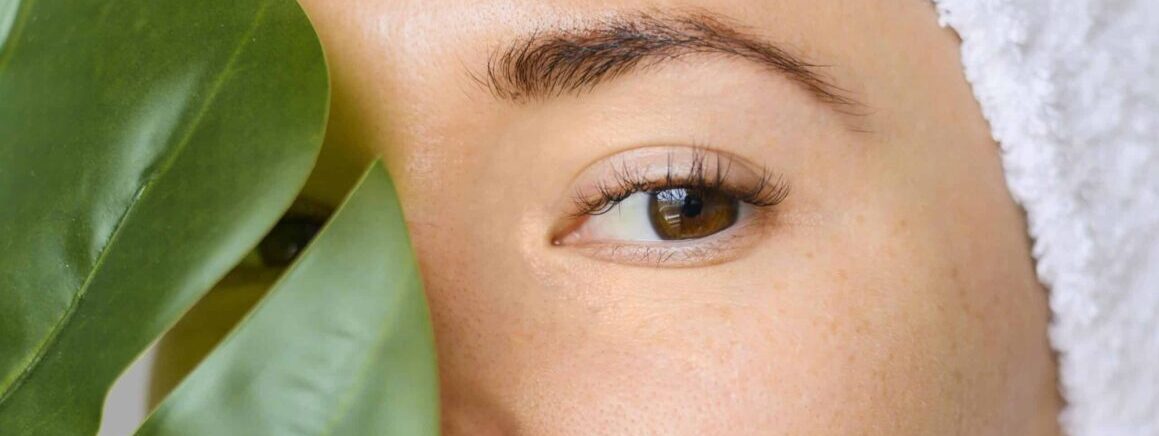Selenium And Skin Health

Concerns about maintaining healthy skin can be as persistent as our skincare routines. Selenium, an overlooked but essential mineral, holds promise for skin vitality and resilience.
This article will unveil selenium’s significant impact on skin health, from antioxidant protection to potential cancer prevention. Stay with us to unlock the secret to a healthier complexion.
Key Takeaways
-
- Selenium is a mineral that helps fight skin damage and aging by battling harmful particles called free radicals. It may also help reduce the risk of some skin cancers.
-
- Eating foods with selenium, like Brazil nuts, fish, and eggs, can support your immune system, hair and nail health, joint function, and thyroid, and heart health.
-
- Too much selenium from supplements could be bad for you, possibly causing skin cancer or other health problems. It’s best to get selenium from your diet instead of taking pills.
-
- During winter, adding selenium-rich foods to your diet might strengthen your immune system. Organic Ashwagandha and Marine Collagen Capsules are two more products people use to stay healthy when it’s cold.
-
- Countries like Canada have rules about selling selenium products to ensure they’re safe for people to use. These rules help keep bad or fake products away from customers.
What is Selenium and its Role in Skin Health
Selenium is an essential mineral that plays a significant role in skin health due to its antioxidant properties, protecting against free radicals, minimizing skin damage and inflammation, and potentially preventing skin cancer.
It also offers additional health benefits such as improved immunity, hair, nails, joint support, and thyroid and cardiovascular support.
Antioxidant properties
Selenium acts like a superhero for your skin because it fights off bad guys called free radicals. These damaging particles can hurt skin cells, leading to aging and disease. But selenium teams up with proteins in your body to make powerful defenders called antioxidant enzymes.
These defenders protect your skin by getting rid of the free radicals.
This mineral also helps reduce puffiness and redness on your skin, often caused by harm and swelling. By lowering inflammation, selenium plays a big role in keeping your skin looking smooth and healthy.
Plus, research suggests that it might even help prevent some types of cancer from affecting the skin because of its special protective powers against cell damage.
Protection against free radicals
Free radicals are bad for our skin. They can hurt cells and make us look older. Selenium fights these free radicals. It stops them from causing damage to our skin and helps keep it looking healthy.
Our bodies use selenium to make special proteins called selenoproteins, which protect the skin by fighting those harmful particles.
Eating foods rich in selenium may also shield you from sun damage and lower your chance of getting some types of skin cancers. This tiny but mighty nutrient supports your body’s defense system at the surface level, ensuring that your skin stays strong against daily environmental attacks.
Minimizing skin damage and inflammation
Selenium fights off bad stuff like free radicals. These free radicals can hurt our skin. With enough selenium, your body makes special proteins that stop these bad guys from causing harm.
This means less damage to the skin and helps keep the redness and swelling down.
This mineral also supports the body’s defense system and helps balance out what’s going on inside us to keep our skin healthy. Good selenium levels protect our cells, boost thyroid work, and play a big part in stopping skin problems before they start.
Potential in preventing skin cancer

Selenium is crucial in reducing oxidative stress and inflammation, potentially aiding in preventing skin cancer. However, it’s important to note that while selenium is essential for overall health, there isn’t solid evidence supporting the use of selenium supplements specifically for preventing skin cancer.
Research suggests that taking daily selenium supplements could increase the risk of certain types of skin cancers, such as squamous cell carcinoma and non-melanoma skin cancer.
Therefore, it’s important to maintain a balanced approach when considering selenium intake and consult a healthcare professional before starting any supplementation.
In summary, while selenium has shown potential to contribute to skin health by minimizing oxidative stress and inflammation, which may aid in preventing skin cancer, caution should be exercised regarding using selenium supplements due to the increased risk associated with certain types of skin cancers.
Other Health Benefits of Selenium
Selenium also offers benefits for immunity, hair, nails, skin, and joint health, as well as support for thyroid and cardiovascular function. Find out more about the multifaceted advantages of selenium in maintaining overall well-being.
Improved immunity
Selenium boosts immunity and is crucial for optimal immune responses. It works with other minerals to enhance white blood cells, strengthening the body’s ability to combat illness and infection.
By participating in antioxidant activities, selenium defends against harmful free radicals and reduces inflammation. These factors contribute to improved overall health and well-being, making selenium essential for supporting the body’s natural defense mechanisms.
Research supports the benefits of selenium in increasing immunity, offering protection against various health conditions, and minimizing skin damage and inflammation. Incorporating selenium into your diet through foods rich in this mineral or carefully regulated supplements can enhance your immune system’s function and overall wellness.
Hair, nails, skin, and joint support
Selenium supports healthy skin by helping to produce antioxidants that protect against damage from harmful particles in the body. It may also improve skin elasticity and reduce signs of aging, like wrinkles and sagging.
Additionally, selenium is essential for maintaining healthy nails and hair. A deficiency can lead to brittle nails and even hair loss. Furthermore, selenium is crucial in joint health as it possesses anti-inflammatory properties, which may help alleviate joint pain and stiffness.
By promoting antioxidant production, selenium helps protect the skin from harmful particles present in the environment. Not only does it aid in reducing visible signs of aging on the skin, like wrinkles, but it also supports nail health by preventing brittleness.
Thyroid and cardiovascular support
Selenium plays a crucial role in supporting thyroid health, helping to maintain its proper function. It aids in converting T4 thyroid hormone into its active form, T3, which is essential for overall metabolic processes and energy regulation in the body.
Furthermore, selenium supports cardiovascular health by reducing inflammation and oxidative stress, contributing to heart disease. Research has suggested that adequate selenium levels may help lower the risk of cardiovascular conditions due to its antioxidant properties.
With these essential roles in mind, ensuring sufficient selenium intake through diet or supplementation becomes pivotal for maintaining optimal thyroid and cardiovascular health.
Sources of Selenium in the Diet
Dietary sources of selenium include foods like Brazil nuts, fish, seafood, poultry, eggs, and dairy products. It’s important to be mindful of excessive selenium intake from supplements or fortified foods to avoid harmful effects.
Foods rich in selenium
Selenium is found in various foods and is crucial to skin health. Consuming selenium-rich foods is beneficial for overall well-being. Here are some examples of foods rich in selenium:
- Brazil nuts: These nuts are the richest source of selenium. Just one nut can provide more than the daily recommended intake.
- Seafood: Fish such as tuna, halibut, sardines, and shrimp are excellent sources of selenium.
- Organ meats: The liver and kidneys from animals like beef or chicken are also high in selenium.
- Eggs: One large egg contains about 15 mcg of selenium, contributing to your daily intake.
- Meats: Lean meats like pork, beef, and lamb offer a good dose of selenium.
- Plants and seeds/nuts: Sunflower seeds and certain types of mushrooms also contain selenium, albeit in smaller amounts compared to Brazil nuts.
Potential risks of taking selenium supplements
Taking selenium supplements carries potential risks that people interested in improving their health should be aware of. Here are the potential risks:
-
- Increased risk of skin cancer, specifically squamous cell carcinoma, and non-melanoma skin cancer.
-
- Possible adverse effects on blood clotting, leading to an increased risk of bruising and bleeding when taken with medications that also slow blood clotting.
-
- Extremely high intakes of selenium can result in severe health problems such as difficulty breathing, tremors, kidney failure, heart attacks, and heart problems.
-
- There is a link between selenium supplements and the possibility of reducing glutathione peroxidase activity, which may lead to an imbalance in antioxidant function within the body.
-
- Selenium supplements might not suit everyone and may interact with certain medications or underlying health conditions, leading to adverse effects.
Selenium deficiency
Selenium deficiency can occur when your diet lacks enough selenium-rich foods. This shortage might result from the soil composition in specific regions, leading to low selenium levels in the plants grown there.
When this happens, people consuming these crops could experience low serum levels of selenium, potentially causing health issues, including skin problems and weakened immunity.
A shortage of selenium may also affect heart health and increase the risk of heart disease. It’s crucial to ensure adequate intake through a balanced diet or supplementation.
Selenium for Winter Wellness & Immunity

During winter, our immune systems may need an extra boost to fight off infections and illnesses. Incorporating selenium-rich foods or supplements into your diet can support overall wellness and help maintain a strong immune system during colder seasons.
Additionally, organic Ashwagandha and marine collagen capsules are popular for those seeking natural remedies to stay healthy in winter.
Organic Ashwagandha
Organic Ashwagandha, known as Indian ginseng, is a potent herb often used to reduce stress and improve memory. It’s an adaptogen, supporting mind-body health by regulating the body’s response to stress.
Additionally, it may help with sleep and immune function. Alongside selenium for skin health, organic Ashwagandha is renowned for its potential benefits in managing cortisol levels and alleviating anxiety.
Its traditional use in Ayurveda makes it an intriguing option for those seeking natural remedies for various health concerns.
Marine Collagen Capsules
Marine Collagen capsules are a natural source of collagen and selenium, supporting winter wellness and immune health. Selenium is known to promote a healthy complexion, and when combined with marine collagen, it creates a powerful formula that nourishes the skin from within.
Additionally, Bronson Marine Collagen Peptides Hydrolyzed Protein Powder contains Nordic Cod and Selenium, providing skin benefits and supporting the immune system, thyroid, prostate, and heart health.
Taking Marine Collagen capsules enriched with Selenium can effectively enhance your skin’s appearance and provide overall health support. These supplements offer an easy way to incorporate essential nutrients into your daily routine for improved well-being.
The importance of supplement regulations and quality control
Supplement regulations and quality control are crucial in ensuring the safety and effectiveness of selenium products. In Canada, the use of selenium in natural health products is regulated under the Natural Health Products Regulations of the Food and Drugs Act.
This ensures that products containing selenium meet specific quality standards, providing consumers with confidence in the purity and potency of their supplements. Adhering to these regulations also helps prevent potential risks associated with low-quality or mislabeled products, emphasizing consumer safety as a top priority when considering selenium supplementation for skin health and overall well-being.
Moreover, supplement regulations support accountability within the industry, promoting transparency regarding the sourcing, manufacturing, and labeling of selenium products. By aligning with established regulations, manufacturers can demonstrate their commitment to producing high-quality selenium supplements that deliver genuine health benefits without compromising consumer trust.
FAQs
Q: What are the benefits of selenium for skin health?
A: Selenium may help maintain healthy skin and nails. Studies suggest that selenium and other minerals like zinc could lead to skin and nail health.
Q: How much selenium should one intake for skin health?
A: The recommended dietary allowance for selenium is 55 micrograms per day for adults. However, excessive selenium intake could lead to selenium toxicity, so it’s essential to stay within the recommended amount.
Q: What are the dietary sources of selenium?
A: Dietary sources of selenium include nuts, seeds, seafood, poultry, and certain types of whole grains. It’s important to maintain a balanced diet to ensure adequate selenium intake.
Q: Are there any health risks associated with low selenium levels?
A: Low selenium levels are associated with various health risks, including heart disease and thyroid health issues. It’s important to maintain optimal levels of selenium for overall health.
Q: Can higher levels of selenium lead to toxicity?
A: Yes, excessive selenium intake could lead to selenium toxicity, which can have adverse effects on health. It’s crucial to be mindful of the amount of selenium consumed through diet or supplementation.
Q: Is there a systematic review and meta-analysis on the effect of selenium on skin health?
A: Research has shown that systematic review and meta-analysis indicate the potential benefits of selenium for skin and overall health. Although selenium’s exact role in skin health needs further study, existing evidence suggests its positive impact.
Q: Does selenium intake affect blood levels of selenium?
A: Yes, the amount of selenium consumed through diet or supplementation can impact the blood levels of selenium. It’s important to maintain a balanced selenium intake to support overall health.
Q: What are the recommended levels of selenium for maintaining thyroid health?
A: Studies suggest that selenium supplementation may help in supporting thyroid health. It’s advisable to consult a healthcare professional for personalized recommendations based on individual health needs.
Q: How does selenium intake relate to heart disease?
A: Higher levels of selenium are associated with potential benefits for heart health. However, it’s important to maintain a balanced intake as excessive selenium may have adverse effects.
Q: Can zinc and selenium together support skin and nail health?
A: Yes, the combination of zinc and selenium may have synergistic effects in promoting skin and nail health. These minerals play a crucial role in overall well-being.

